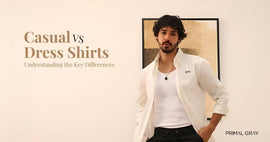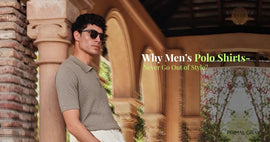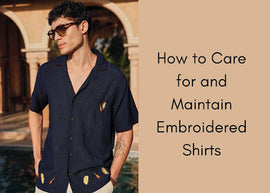WHAT IS ETHICAL FASHION
Posted by Primal Gray

The concept of fashion is evolving beyond just looking good, it is about feeling good, both for ourselves and for the planet. Ethical fashion, a trend that combines style with sustainability, has taken center stage. This movement prioritizes responsible practices that consider environmental and social impacts, ensuring that your wardrobe choices reflect your values. Ethical fashion encompasses a range of principles that prioritize the well-being of workers, communities, and the environment throughout the entire lifecycle of a garment. It includes factors such as fair wages, safe working conditions, reduced carbon footprint, minimal waste, and the use of sustainable materials. Sustainable fashion, on the other hand, focuses on minimizing the industry's impact on the environment. This includes reducing resource consumption, minimizing waste, and using eco-friendly materials. Sustainable fashion aims to decrease the carbon footprint of the fashion industry and address issues such as pollution, overconsumption, and the use of non-renewable resources.
By focusing on these aspects, ethical fashion seeks to counteract the negative effects of fast fashion and foster a more sustainable industry.
Embracing ethical fashion doesn't mean sacrificing style. In fact, it opens up a world of unique, high-quality pieces that tell a story. Here's how you can make ethical fashion choices:
- Research Brands: Look for brands that prioritize ethical practices. Check if they provide information about their supply chain, materials, and certifications.
- Quality over Quantity: Invest in timeless pieces made from durable, sustainable materials. They may have a higher upfront cost but offer longevity and versatility.
- Secondhand and Vintage: Explore thrift stores and online platforms for pre-loved fashion items. Extending the lifecycle of clothing reduces demand for new production.
- Natural and Organic Materials: Choose garments made from organic cotton, linen, or other recycled materials. These materials have a lower environmental impact compared to conventional fabrics.
- Fair Trade and Local Production: Support brands that collaborate with artisans and ensure fair wages for workers, often in local communities.
- Minimalism: Embrace a minimalist approach to your wardrobe by curating versatile pieces that can be mixed and matched.












